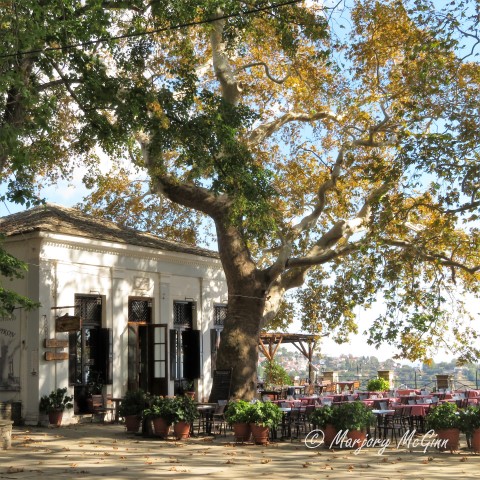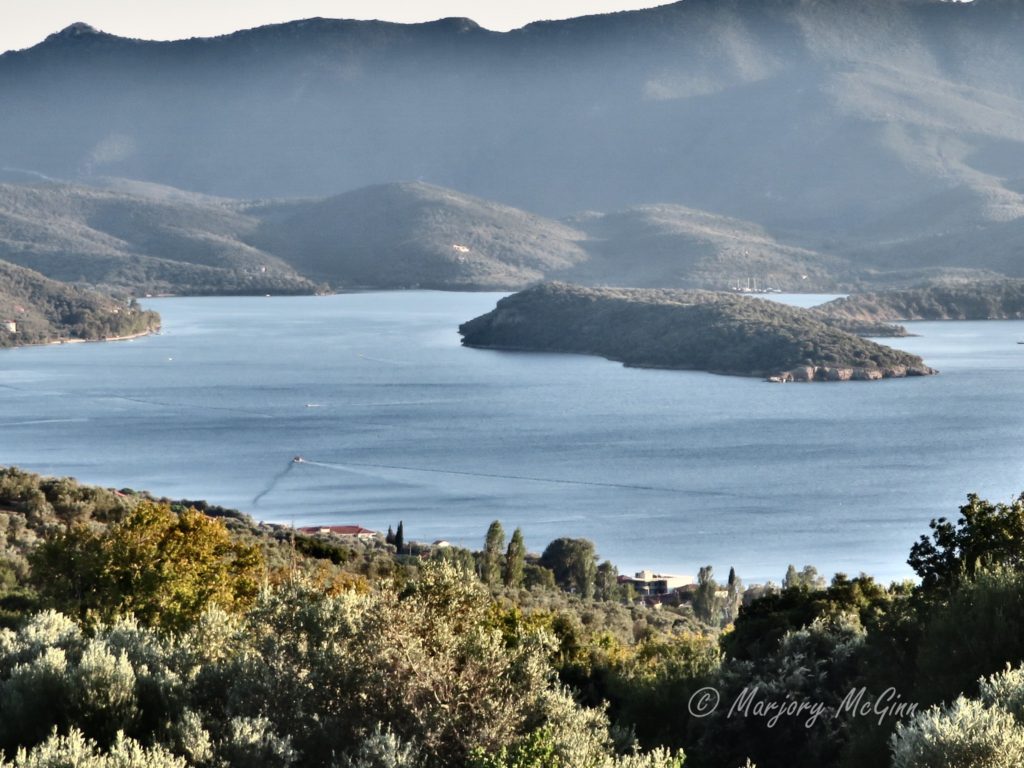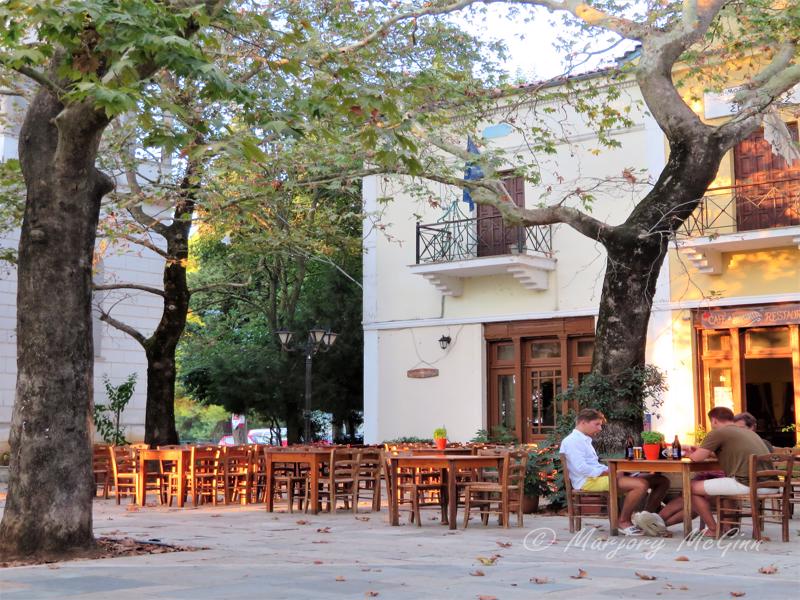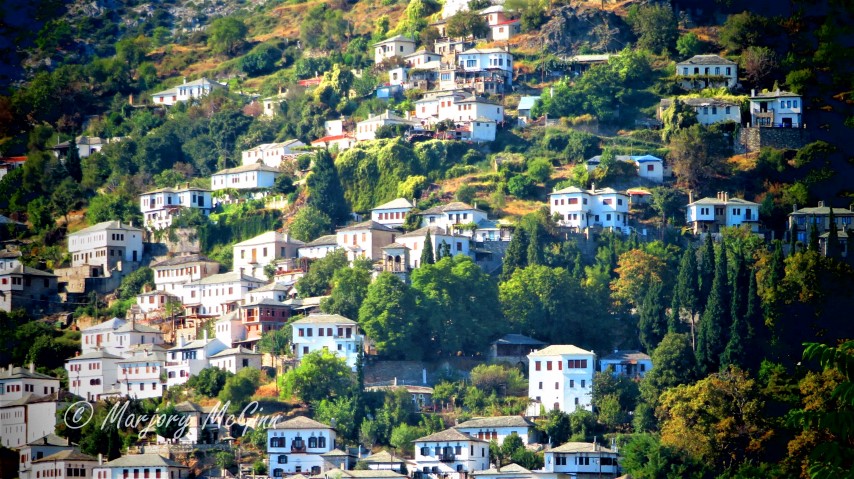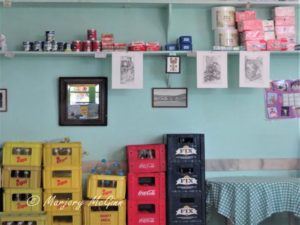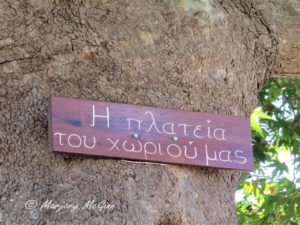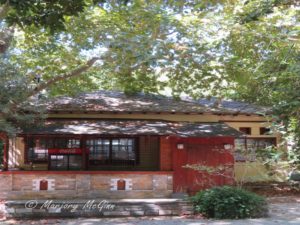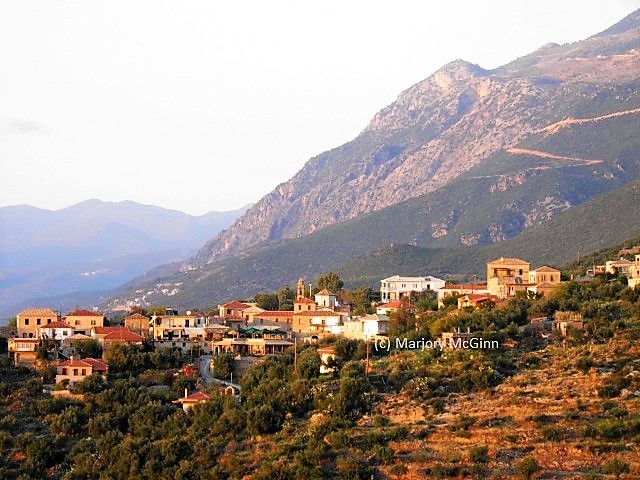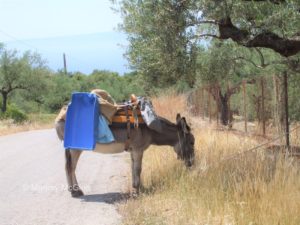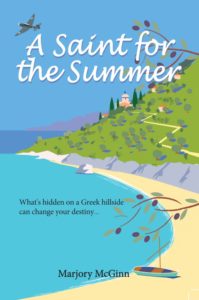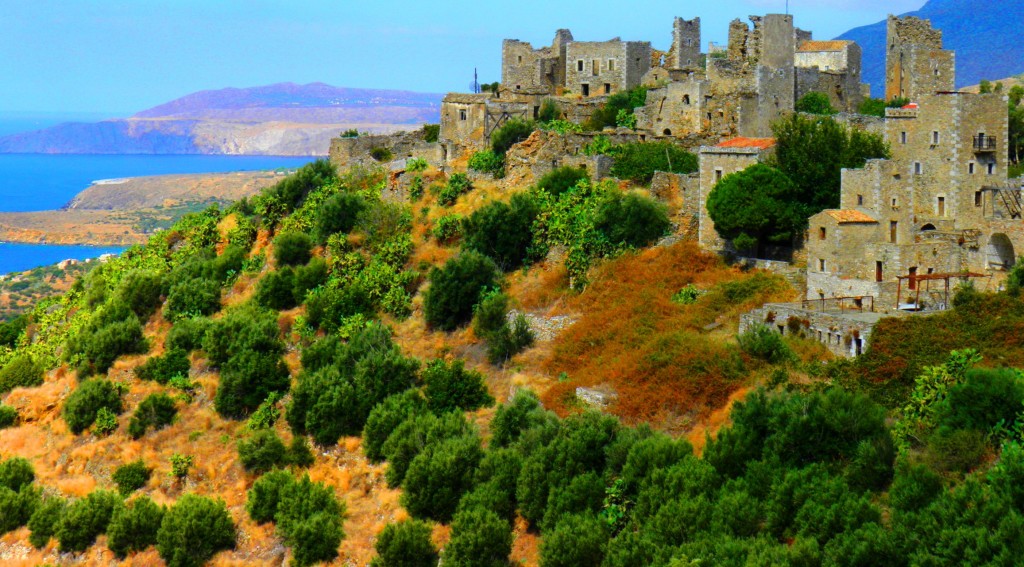NOT all Greek villages are created equally. Two villages can be several miles apart, with roughly the same background and geographical aspect, yet one will be thriving, with a plateia rimmed by busy cafes and tavernas, while the other is on the slide. Sometimes there’s no explanation apart from something that’s now lost in the natural twists of history.
When I was in the mainland region of Pelion last year I was strongly reminded of this fact and also how fiercely loyal and competitive Greeks are about their own village, no matter what shape it’s in. Jim and I had rented a villa in the south of the Pelion peninsula for a month. It was on the edge of a small village, which was quiet, with not many inhabitants apparently, but with gorgeous views down to the Pagasitikos gulf and well placed to access both this side of the peninsula and the other, on the Aegean. As people who don’t like touristy locations in Greece, we thought we’d done pretty well to find a comfortable house in this location.
Yet, while browsing in an old-fashioned souvenir shop in the coastal village of Milina, the black-clad owner of a venerable age asked us where we were staying. I told her Metochi, in the foothills behind. She pulled a great lemony face. “Metochi! Why would you want to stay there? There’s nothing there. Nothing but old houses. Pah! Here is better,” she said, waving towards the vista of crowded tavernas and sun loungers along the beachfront.
I laughed at her put-down of Metochi for being the poor relation to the buzzy, thriving Milina. In her mind Metochi fell into the second category of villages dwindling into oblivion. There are a number of run-down and abandoned houses in the centre of Metochi, that’s true, and it wasn’t hoaching with people, in September anyway. On the surface it was just a village on the way to somewhere else as it’s on the ‘main’ road from the popular town of Argalasti to the bigger village of Lafkos and then to the south of the peninsula. Lafkos is elegant with a large church and wide plateia (square) with classical houses and busy tavernas and cafes.
The plateia is usually the hub of a Greek village and always a good indication as to whether the place is thriving or not, and it’s worth flagging this up when you’re in the market to buy a house in Greece. Some of the more remarkable villages in the Pelion mountains further north have sumptuous plateias, like Makrinitsa, set under huge plane trees and with a view down to the city of Volos. But Makrinitsa is well established with a stronger foothold in the region’s history. It has old churches with frescos and an impressive museum. This village has been the haunt of artists, writers and revolutionaries. Milies and Tsagarada are smaller mountain villages yet they too have obvious treasures. Milies has a public library with one of the largest collections of Greek and foreign books in Greece, with some of them dating to the 14th century. Its church of the Taxiarchon is also world famous for its acoustics. Tsagarada has a 1,000 year old plane tree in its beautiful plateia.
Metochi’s plateia was a ghost plateia during the day at least. It was large enough and well situated, high above the road under plane trees with incredible gulf views, and perfect to catch a cool afternoon breeze in summer. It must have been lovely once, with a traditional kafeneio on the far side, now closed, and a smaller one beside it, still operating for limited hours and serving also as a general store. The only time we saw people in the plateia was at night, men mostly, drinking beer and playing the board game, tavli.
At the top of the steps was a sign fixed to a plane tree saying: “Our village plateia”, which was a touching and yet forlorn message. Such as it was, many people obviously still took great pride in their plateia. But its semi-abandonment speaks of a village having lost its way somewhat, apart from some modern, yet discreet, holiday villas at its outskirts, surrounded by olive groves, where we were staying.
The village had obviously had a different life once. At one end of it there’s a natural spring, spouting cool sweet water, where people still stop to fill up bottles. Across the road from the spring, there’s an abandoned psistaria (grill house) with its huge barbecue still visible at the front, for spit-roasting meat. The broad terrace here would once have been packed, especially on important feast days, but is now just an empty space where fallen leaves twirl in the wind and people park to fill up their bottles across the way.
This is a reflection of what’s happening everywhere in rural Greece, in hillside locations. In the Mani we found many villages that were beautifully sited with once-lovely stone houses that now seemed dead. In one village we found an abandoned kafeneio, its door hanging open and a collection of old junk and furniture piled up inside and old bottles and dusty glasses still on the wooden counter. It was as if the owners had hurriedly disappeared and left everything as it was. In another village we found a group of old people sitting around the front door of a crumbling stone house. There were five of them, most of the current full-time population, they told us rather mournfully.
The village of Metochi is not in such bad shape, not as long as an essential road cuts through it. It wasn’t vibrant and yet we liked its wound-down appeal, its solitude, the view, and no-one bothered us at all, apart from one village gossip. She regularly passed by on the road and one day stopped to ask a slew of personal questions, as Greeks often do, including how much we were renting the villa for because her daughter also had one to rent nearby if we were interested. Cheeky!
Greek rural villages at least are a world apart, whether they buzz or not. When you plan to live in one for any length of time you have to navigated them thoughtfully and choose wisely. Too quiet, too noisy, too parochial, or too steeped in difficult history, and you might be in peril.
When we settled in the Mani, southern Peloponnese, in 2010, for our long Greek odyssey, we picked a hillside village that felt remote, with the Taygetos mountains as its backdrop, but in fact was only a 15-minute drive to the outskirts of Kalamata at the head of the Gulf of Messinia. As it turned out, Megali Mantineia was perfect for us and our crazy Jack Russell Wallace, a type of dog that none of the villagers had seen before and thought resembled a small goat – and he often acted like one!
Megali Mantineia is a successful working village where locals still cultivate their vast olive groves and herd goats. We decided the best way to live there was to befriend Greek villagers rather than cultivate the British expats because we didn’t want to live an expat life. Not that trying to fit into any village as a foreigner is easy. It’s not. Had I not spoken reasonable Greek from a long association with the country and endless Greek language classes, I would have found it more difficult, as few of the villagers spoke much English. I quickly learnt the secret of fitting in was simple: go well beyond your comfort zone and leave all your preconceptions about life, up to a point, behind you.
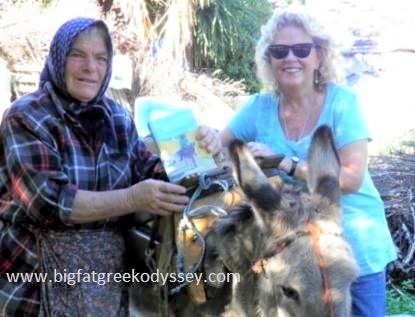
Foteini, thrilled to have a copy of my first memoir which features her, and donkey Riko, on the cover
When we first met the goat farmer Foteini – who features in my three Greek memoirs – she was riding into the village on her donkey. Conversing was a challenge as she spoke a heavy mountain dialect and things could easily have gone nowhere. But there was something so unique about her that Jim and I instantly took to her and when she invited us back to her farm compound (a place of rural junk and manic disorder) we never thought twice about it really. And so a strange and unusual friendship flourished, particularly between myself and Foteini. She certainly trounced all my personal preconceptions and, in her way, became a very unlikely muse. Our regular, generally very funny, interactions sparked my journalistic curiosity and inspired me to write the memoirs. How could I not? Fate had cast her on my path, on the very first day in the village.
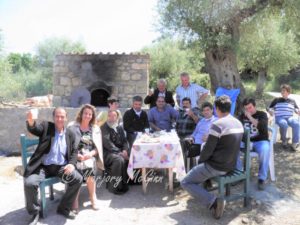
Some of the villagers and priests from Megali Mantineia on a special feast day. Jim standing in back row, right
Since my first memoir, Things Can Only Get Feta, was published in 2013, readers have contacted me to confess they want their own Greek odyssey, which is lovely, and have asked for advice. I don’t have much really except for this: learn some Greek, talk to everyone. Go beyond what’s comfortable and take part in all the village celebrations (there are many during the year), and church services too because this is the best way to see Greeks as they really are. It’s a window into their society and shows villagers that you respect this, and their culture, and you’re not in the village just to have a remote, parallel life to them.
Before we finally returned to Britain, for personal reasons, we invited many of the villagers from Megali Mantineia to a farewell meal at one of the local tavernas. It was a bitter/sweet night and very sad to say goodbye at last. Everyone lined up to kiss us farewell, some bringing small gifts. One of the women, Voula, whom I’d also become fond of, hugged me and announced: “You’re one of us now Margarita (the name Foteini had given me). You’re a Maniatissa.” Maniatissa is the Greek word for a woman of the Mani. It was humbling to get the title; far better than a Queen’s honour.
Navigating the cultural terrain of a Greek village isn’t easy. It requires more of you than you sometimes want to give. But in the end, it offers you life experiences and insights you will struggle to find elsewhere.
If you want to read more about life, drama and romance in Greek villages, my first novel A Saint For The Summer is currently on an Amazon ebook promo, 99p/99c (UK/US) from August 16 to 23. It’s a tale or heroism, faith and love with a narrative thread back to WW2 and set in the wild Mani region of Greece. One reviewer described it as: “An excellent read. I was hooked from the first page.” Another said: “The story made me laugh, made me think and made me cry a little.”
Link: https://bookgoodies.com/a/B07B4K34TV
If you have read any of my books and liked them, please think of leaving a small review on Amazon. It will be gratefully received. Thanks.
For more information about all the books please visit the books page on our website www.bigfatgreekodyssey.com
Or visit Marjory’s books page on Facebook
Thanks for dropping by. All comments are gratefully received. Just click on the ‘chat’ bubble at the top of this page.
© All rights reserved. All text and photographs copyright of the authors 2010-2019. No content/text or photographs may be copied from the blog without the prior written permission of the authors. This applies to all posts on the blog.
